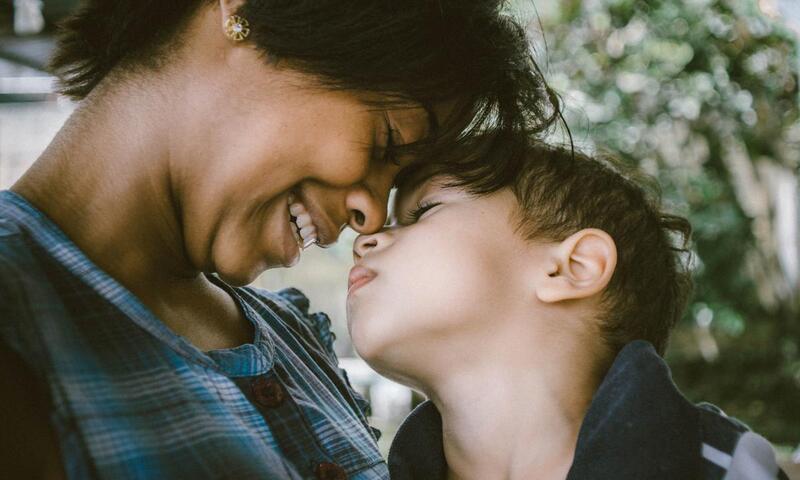The Sacred Work of Mothering Part 2

Being a mom comes with great power, challenges, and responsibility. Last week, Alison Cook discussed a mother's "sacred work" and the first precious gift a mother gives her child. To read part one of Alison's blog, click here. In today's blog, Alison continues the discussion with the last two precious gifts that best show how God parents us.
The Gift of Delight
God delights in the children he created. He takes pride in his workmanship, but that’s not to say He doesn’t see our shortcomings. He does. But, He knows how to show His deep regard for who we are, even when we make mistakes. Similarly, as a mom, you have the opportunity to delight in your children. A child needs to know you are proud of him or her, even when they fail.
Taking pride in your children is not the same thing as creating a culture of arrogance. Healthy pride is not about comparing your children with other children. Instead, it has everything to do with that surge of joy you feel when you catch a glimpse of your little person doing something in line with how God made them.
For example, unhealthy pride says, “You are so much better than her.” On the other hand, healthy pride says, “I absolutely love seeing you step into your God-given light.” Healthy pride might also say, “You didn’t win that one, my love. But, I am so proud of you for being brave and trying.” Healthy pride is not about superiority or hierarchy. Healthy pride delights in seeing your children develop their talents and learn resilience.
Delighting in your children helps them claim their God-given potential. It also helps them learn to take pride in themselves and respect other people. In fact, psychologists have found that the more you honor your talents and lead yourself confidently into the world, the more you will pave a way for others to follow.
Arrogance = “I am better than other people.”
Inferiority = “I am not as good as other people.”
Self-respect = “I respect myself, and I respect other people.”
The Gift of Gratitude
Children are a gift, and they are also a lot of work! It can be tempting for some mothers to blame their children for the hardships in their lives. You might subconsciously resent a child whose needs meant you had to sideline your own dreams. Or, you might struggle with a personality trait that you don’t really like in your child. These things happen. There is no shame in having these feelings.
And, yet, it’s so important to do the work to ensure these feelings don’t impact your children. Children who feel like a burden to their parents grow up with heavyweights of shame and guilt.
On the other hand, children who feel appreciated as valuable contributors grow up confident and self-assured. They learn to appreciate their own value, and as a result, appreciate the value in others.
Expressing gratitude for your child moves a step beyond the first step of seeing them. Not only are you aware of who they are, but you express gratitude for the impact their life has on you. For example, you might say something like the following to your child:
“I appreciate how honest you are. You have taught me more about opening up.”
“I appreciate your work ethic. I’ve learned so much from watching you persist.”
“I’m grateful that you have brought your interests into my life. Without you, I might never have learned about this topic.”
Expressing appreciation for your child shows them that their life matters. You’re not just in their life because you have to be, you’re actually being shaped by who they are.
As you show gratitude for your children, you instill in them an appreciation for their ability to impact other people. And, this self-appreciation will extend to how they view other people.
Self-absorbed = “I don’t appreciate the contributions of other people.”
Self-deprecation = “I don’t appreciate my own contributions.”
Self-appreciation = “I appreciate myself, and I appreciate other people.”
Breaking the Cycle
Many of you did not have mothers who saw you, delighted in you, or gave thanks for who you are. Perhaps your mother did the opposite:
Instead of seeing you, perhaps she wanted you to do the work of seeing her.
Instead of delighting in you, perhaps she criticized or competed with you.
Instead of giving thanks to you, perhaps she let you know that you were a burden.
If this is the way you were mothered, it can leave some painful wounds. No matter what pain your mother experienced, it is never OK for her to take that out on you. Her wounds are not your fault. Her wounds are not your responsibility to heal.
The good news is that you can heal. In fact, the best gift you have to give your own children is the work of healing yourself.
You have an opportunity to break the cycle and change the legacy you received moving forward.
You can heal your own wounds and learn to parent your children in the way that you deserved.
You can learn to give yourself these same three gifts you long to give to your children: the gift of being seen, the gift of delight, and the gift of being appreciated as an irreplicable reflection of God’s very image.
You can learn to attune to these beautiful words spoken over you by God, your Father:
I see you.
I’m proud of you.
I’m grateful for who you are.



